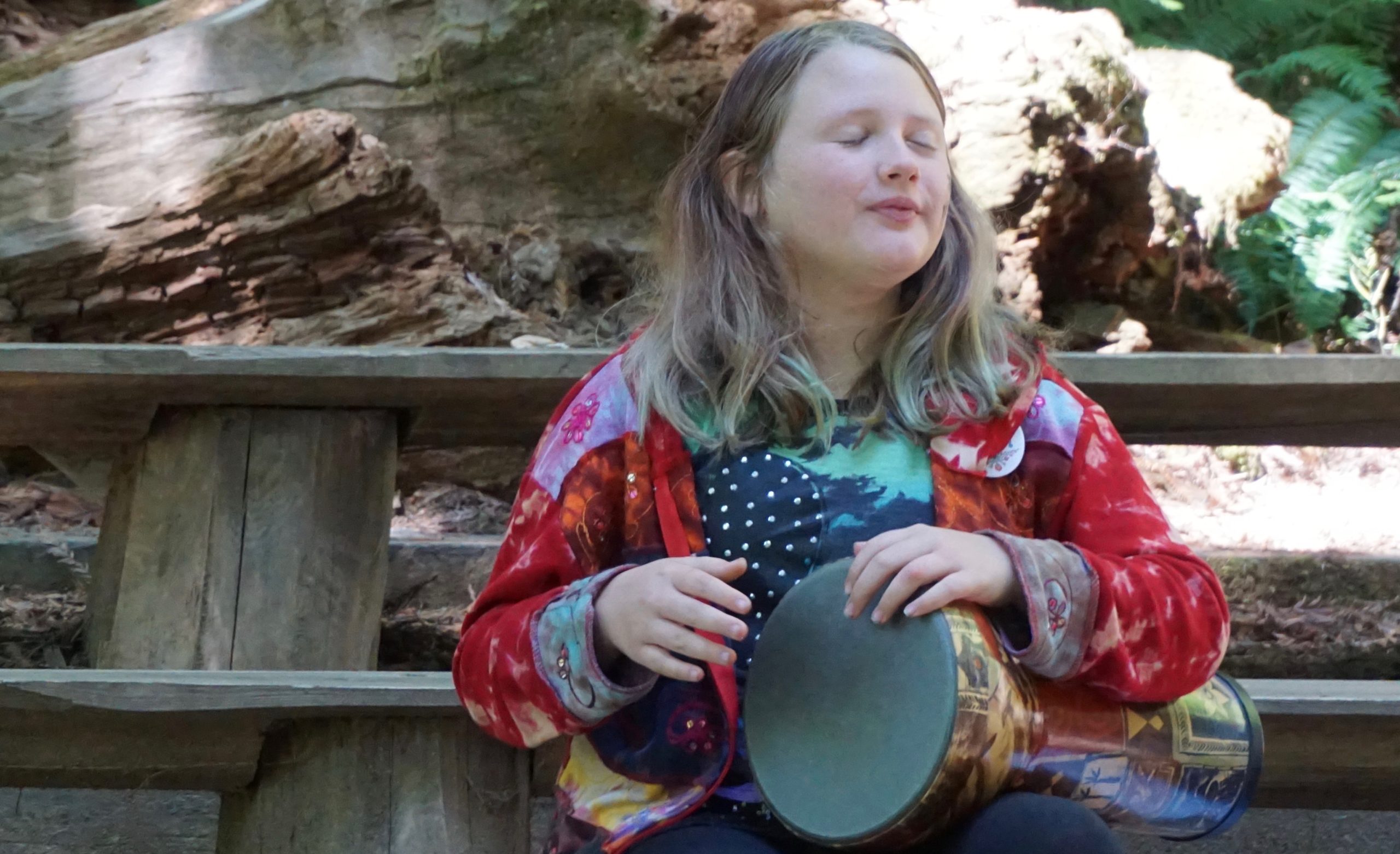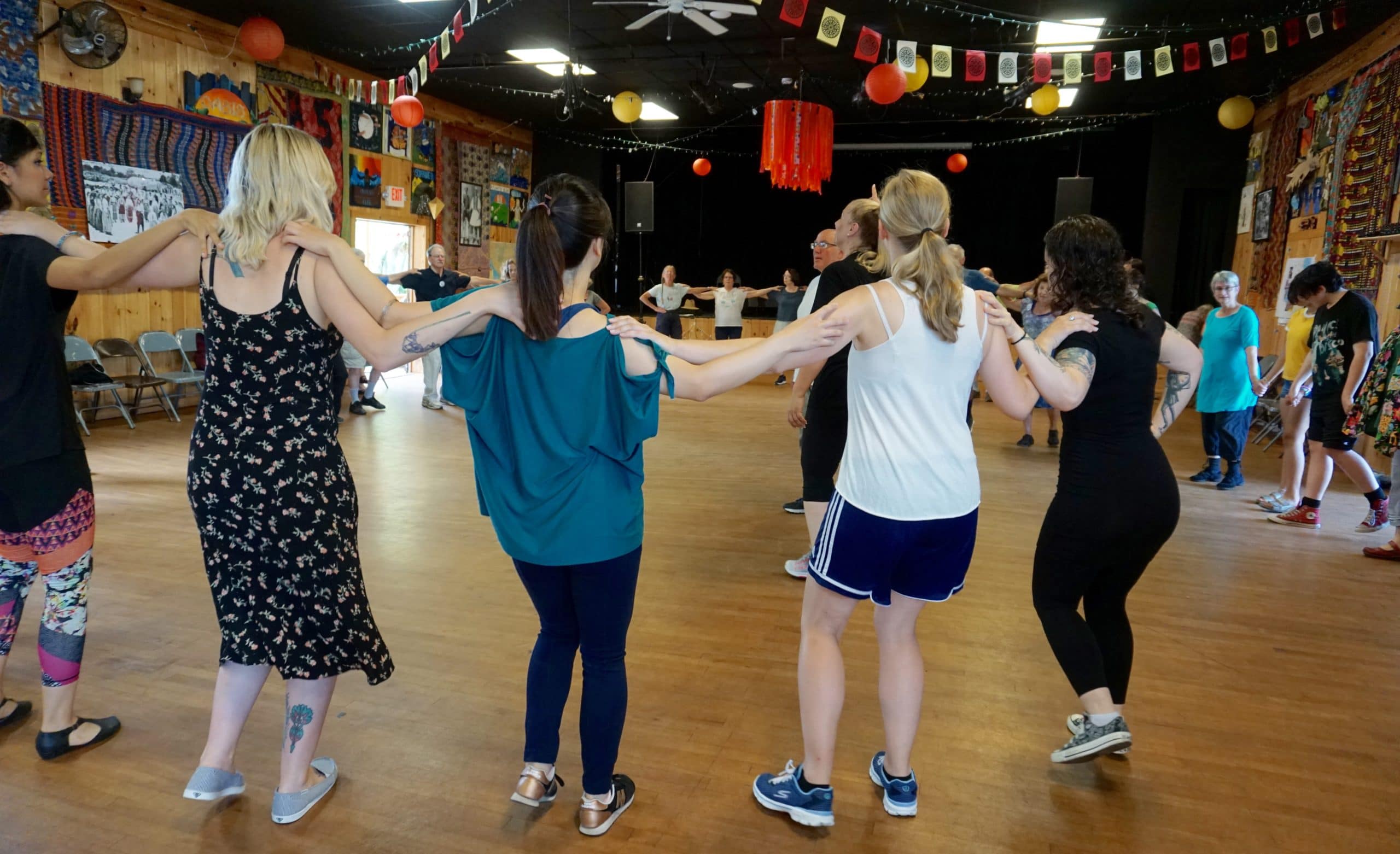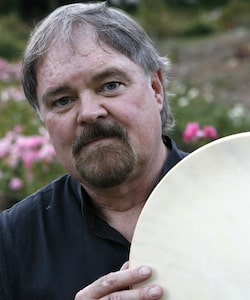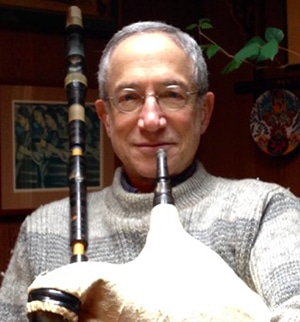
West Coast Balkan Music & Dance Workshop
Mendocino Woodlands, California
June 28 – July 5, 2025
Since 1977 the West Coast edition of the EEFC’s Balkan Music & Dance Workshop has been gathering amidst the towering redwoods of the Northern California coast. Each year we welcome new friends along with old, as musicians and dancers and those who love them come together with our extraordinary teaching staff for a memorable week. Our rustic setting makes for a true getaway. Our programming offers numerous opportunities to learn, and our welcoming and warm atmosphere creates a friendly setting for your week at camp.
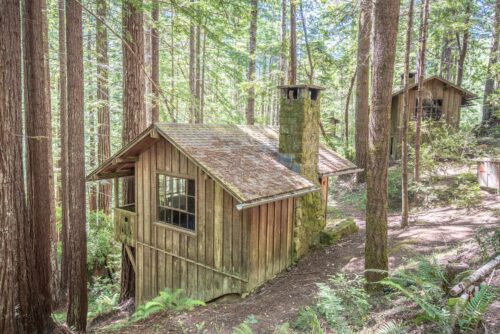
The Facility
The Mendocino Woodlands is located in a beautiful redwood forest near the Northern California coast, 175 miles north of San Francisco. A half an hour inland from the scenic coastal town of Mendocino, our camp has three clusters of rustic (no electricity), four-person enclosed cabins on somewhat hilly terrain with stone fireplaces and balconies, a spacious dance hall, and plenty of tenting sites. Each cluster has its own bathhouse with lights and hot showers. Between classes you can hike in the forest or take a dip in the swimming hole in the nearby river.
The Workshop
The Mendocino Workshop runs from Saturday evening to the next Saturday morning. Classes begin Sunday morning, and are held each day through Friday. Following a review session Friday morning, participants have the option to perform in a student concert. The week closes on Friday with a Balkan-style lamb roast and the last of the week’s great evening parties. We have part-time attendance options available.
The Program
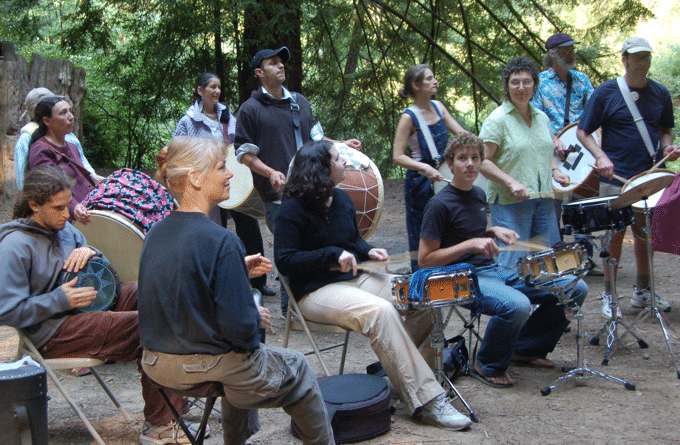
A broad array of instrumental, vocal, ensemble, and dance classes at all levels are offered across five daily 75-minute class slots. We provide an instrument-lending program to enable new students to get started on harder-to-find village instruments. In the early evenings the program includes folklore presentations and panel discussions, group sings with musical accompaniment, and our fun, community-building auction. Live-music dance parties featuring our world-class staff musicians will rock your socks in the dance hall, and the party continues late into the night in our more intimate cafe-bar, the kafana, featuring a variety of staff and camper musical sets, from the sublime to the floor-stomping. See a sample daily schedule.
Food
The workshop features three delicious meals a day and an evening snack, with selections to please both omnivore and vegetarian tastes.
Families
We welcome families! The Mendocino workshop features a youth band and kids’ dance and singing classes; and children are also welcome and encouraged to take adult classes, according to their capabilities. Find more info on Kids at Camp.
Work Exchanges
Mendocino camp runs smoothly thanks to a hard-working crew of work exchange campers, who receive a partial tuition waiver (or a full waiver in some cases) in exchange for their labor. More information on 2025 work exchange opportunities will be available in the spring.
Evening Parties
You may attend just the evening parties, which usually begin at 9 p.m. Admission includes the evening dance party and late-night Kafana activities until 2:30 a.m. (no overnight accommodations). Registration for 2025 evening parties will be available when general registration is open in the spring.
Cost, Registration, and Other Information
Registration for the 2024 workshop is closed and camp is over. Workshop registration for 2025 will be open in the spring of 2025. Stay tuned!
2024 Teachers
This is a list of last year’s teachers, just to give you a sense of our fantastic staff. We will begin publishing names for 2025 starting by the end of the year.
Dance
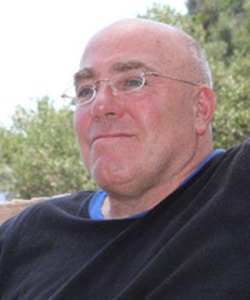
Joe Kaloyanides Graziosi
Greek Dance
Joseph Kaloyanides Graziosi was born and raised in the greater Boston area. Of Greek and Italian ancestry, Joe was exposed at an early age to Greek music and dance through both family contacts...Read More
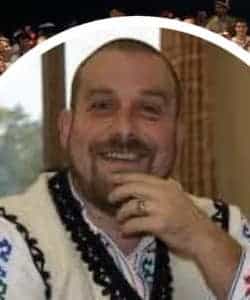
Konstantin Marinov
Bulgarian Dance
Konstantin "Kotse" Marinov is from Stara Zagora, Bulgaria. From the age of 5 he performed with the Children's and Youth Ensemble "Zagorche." Kotse was born into a dancing family: he and his...Read More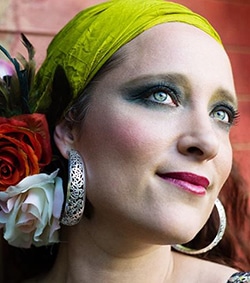
Jessaiah Zuré
Turkish Roman Dance
Jessaiah Zuré is a California native, the daughter of musicians. Raised primarily in the San Francisco Bay Area in a very creative and open environment, she was exposed to many styles of music...Read More
Instruments & Ensembles
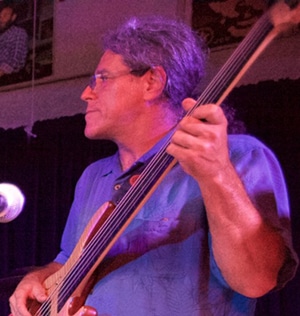
Paul Brown
House Bassist (non-teaching)
Paul Brown has been playing music for 44 years, studying bass and improvisation at the Berklee College of Music in Boston, and oud and makam with Haig Manoukian and Necati Çelik. Comfortable in...Read More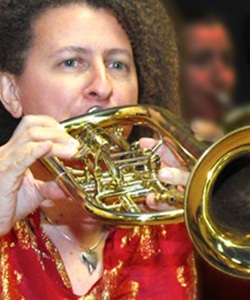
Catherine Foster
Romani Clarinet & Saxophone
Catherine Foster has been performing music from Southeastern Europe for over 30 years and has been playing trumpet, clarinet, and saxophone with Borozan Brass Band, Zlatne Uste Balkan Brass Band,...Read More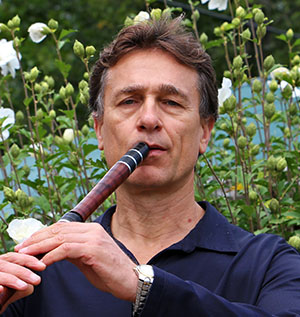
Valeri Georgiev
Bulgarian Kaval
Valeri Georgiev is from the Bulgarian Danube town of Ruse. He studied kaval in Kotel with Stoyan Chobanov and Georgi Penev, and graduated from the Plovdiv Academy of Arts with a BA degree in...Read More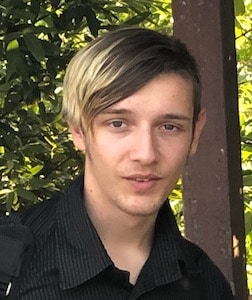
Bobby Govetas
Beginner Ensemble
Bobby Govetas is an accomplished percussionist, performing on daouli and drum kit. He is equally at home playing the subtle rhythms of Macedonia and Thrace as he is rocking out with his friends....Read More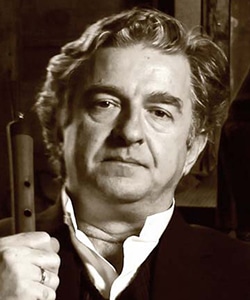
Christos Govetas
Greek Clarinet
Christos Govetas was born in the village of Proti, in the province of Serres in Greek Macedonia. After emigrating to Boston in 1978 he joined the Rebetiko band Taxími as a bouzouki and baglama...Read More
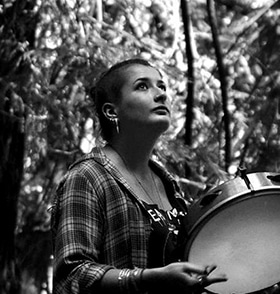
Eleni Govetas
Greek Ensemble
Eleni Govetas was born into the musical Govetas family, and has been immersed in the music from day one. She began performing with her family at the age of nine, and has continued to pursue...Read More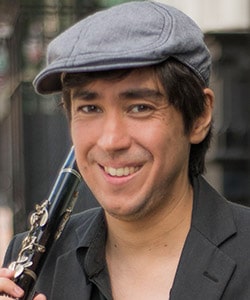
Greg Masaki Jenkins
Beginner Ensemble; Rebetika Ensemble
Greg Masaki Jenkins is a second-generation American Balkan folk dancer who grew up at the Balkan Music & Dance Workshops. He gigs regularly throughout the San Francisco Bay Area with the...Read More
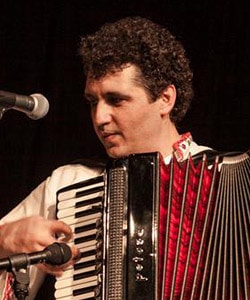
Kalin Kirilov
Accordion; Bitov/Bulgarian Village Ensemble
Kalin Kirilov, born in Vidin, NW Bulgaria, began singing and playing the accordion at the age of four. He studied tambura and music theory in Vidin and Pleven and graduated from the Academy of...Read More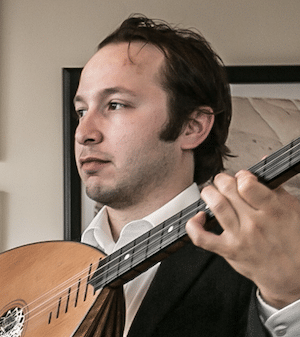
Nick Maroussis
Greek Strings; Rebetika Ensemble
Nick Maroussis is a musician based out of Seattle, Washington, where he grew up playing strings in various rock bands in the greater Seattle area. His involvement in the Greek community and...Read More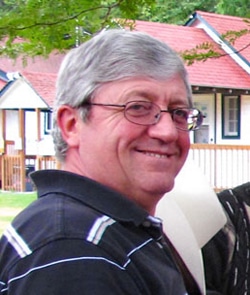
Stoyan Kostov
Bulgarian Tambura
Stoyan Kostov has been playing Bulgarian tambura for over 40 years. He graduated from the folk music school in Kotel and the Plovdiv Academy of Music and Dance. Stoyan performed with Ensemble...Read More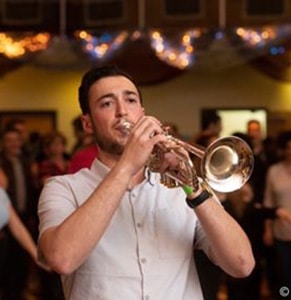
Benji Rifati
Trumpet; Brass Band
Benji Rifati is an American-Rom who has spent years studying trumpet from Romani masters of Eastern Europe. His teachers include legends such as Zahir Ramadanov and Demiran Ćerimović, as well as...Read More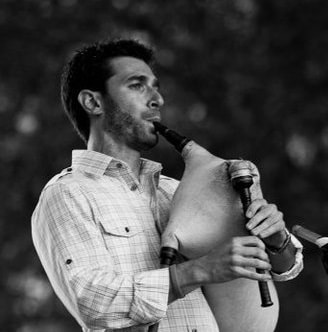
Varol Saatcıoğlu
Thracian Gajda
Varol Saatcıoğlu was born in Edirne, Turkey, into an extended family of musicians. At the tender age of five, Varol was accepted into the Istanbul University State Conservatory where he studied...Read More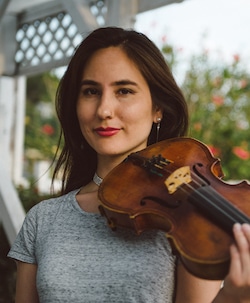
Aya Safiya
Greek Violin
Aya Safiya is a Bay Area-born violinist who specializes in traditional Greek music. She has studied Greek violin for over 25 years with various teachers including Nicos Chatzopoulos and Nikos...Read More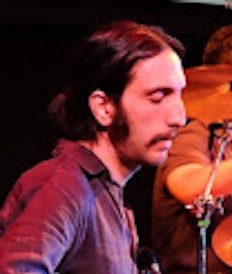
Ali Yağız Şen
Makam Theory
Ali Yağız Şen, whose stage name is Jarolim Gayri, hails from the vibrant musical landscape of Istanbul, Turkey, and is a multi-instrumentalis, pedagogue, and scholar deeply rooted in the rich...Read More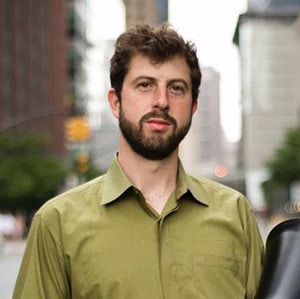
Sean Tergis
Doumbek
Drawing on a music base in folk music from the Middle East, Turkey, Greece and the Balkans, Sean Tergis brings a unique element to his drumming through many different influences. Since 2002, Sean...Read MoreSinging
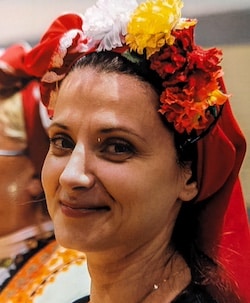
Tzvety Dosseva
Bulgarian Singing
Tzvety Dosseva is the daughter of well-known Bulgarian musicians Lyuben Dossev and Tanya Dosseva. Inheriting her parents' talent for music and performing, Tzvety experienced the stage for the...Read More
Christos Govetas
Greek Singing
Christos Govetas was born in the village of Proti, in the province of Serres in Greek Macedonia. After emigrating to Boston in 1978 he joined the Rebetiko band Taxími as a bouzouki and baglama...Read More
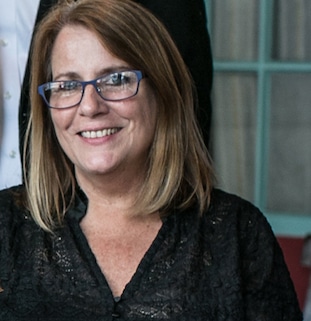
Ruth Hunter
Introduction to Balkan Singing
Ruth Hunter began her musical career singing and playing Bulgarian folk music, but immersed herself in Greek music and culture after marrying Christos Govetas in 1995. She sings and plays...Read More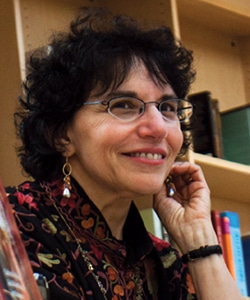
Carol Silverman
Romani Singing
Carol Silverman has been involved with Balkan and Romani music and culture for over thirty years as a researcher, teacher, performer and educational activist. An award-winning professor of...Read More
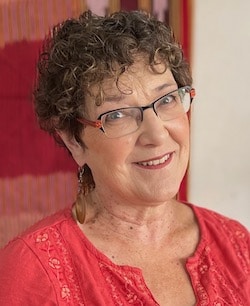
Michele Simon
Balkan Vocal Technique 101; Balkan Vocal Technique Master Class
Michele Simon has been involved with music all of her life, and with Balkan folk music for most of it, as a dancer, singer, drummer and teacher. She was raised surrounded by music of all kinds,...Read More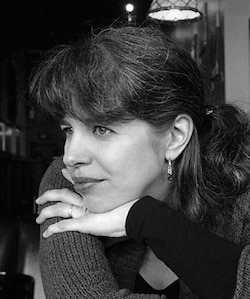
Dina Trageser
Bulgarian Choral Singing
Dina Trageser attended her first EEFC camp at Mendocino in 1997, and has been avidly learning, performing, and eventually teaching Balkan singing ever since. In 2005 she founded the women’s...Read MoreFor the Kids
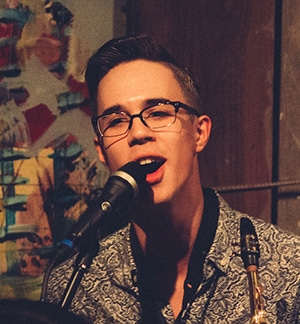
Tano Brock
Youth Band
Tano Brock was born and raised in San Francisco, CA. At a young age, he began attending various music camps in California with his family, where he picked up his first instrument, doumbek. He...Read More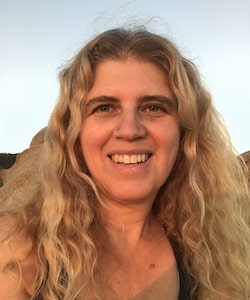
Darina Drapkin
Children's Activities
Darina Drapkin is a native Russian speaker, having immigrated to the U.S. over 40 years ago. Her enthusiasm, curiosity, and musical interests have led her into many genres and traditions of...Read More
Eleni Govetas
Youth Band
Eleni Govetas was born into the musical Govetas family, and has been immersed in the music from day one. She began performing with her family at the age of nine, and has continued to pursue...Read More
All About Camp Work Exchanges
The Mendocino Workshop runs smoothly thanks to a hard-working crew of work exchange campers, who receive a partial tuition waiver (and a few full waivers) in exchange for their work.
Work exchange folks have a job at camp, like washing dishes or cleaning bathrooms. In exchange for their hard work, they pay reduced tuition (in most cases 50%) to come to camp. Some jobs require special skills, experience, or knowledge of the workshop environment, others requiring lifting or standing, etc. Others are great for first-timers or require no special skills.
The Site Manager fields work exchange requests and helps manage the work exchange crews during camp, along with crew leaders who manage the larger crews.
What’s the difference between a work exchange and a workshop scholarship?
A work exchange job means that you get assigned some work/duties at camp and in exchange some or all of your tuition costs are waived. A scholarship is different—with a camp scholarship, some or all of your tuition costs are paid by generous donors and you do not have any work duties at camp. If you have applied for and end up receiving a scholarship, you may withdraw your work exchange request. Please note that the Mendocino scholarship application period has already ended, and that scholarship decisions will be announced in April.
About the work and jobs:
Workers are required to arrive at camp by 4:00 p.m. the first day of camp and stay until 11:00 a.m. the last day. Note that we cannot accommodate part-time campers for work exchange. Work exchangers are also expected to be timely and responsible throughout the week (that means arriving to your shifts on time, getting the work done, etc.)
At Mendocino, the majority of work exchange positions are on the Dish Crew. Folks on the Dish Crew work two 90-minute shifts per day. There’s a swap meeting the first night to trade around shifts and optimize your schedule, but it’s still possible you may have to miss a class or two. Lots of the people on Dish Crew enjoy being part of a team, making friends, and having some additional structured time. (And everybody loves using the sink sprayer!) This is a great crew for first-timers, as no prior skills or knowledge of camp are required, and making new friends is quick and easy.
Other crews include Bath Crew (cleaning bathrooms/washhouses, taking out trash, some auxiliary setup of chairs/benches); Donation Store Crew (setting up, running, and closing down the Donation Store. Often includes pre-camp organizing get togethers in the Arcata area for those available); Kafana Crew (setting up, running, and closing down the Kafana. Includes lots of late-night shifts.) Other specialty jobs include the Gofer (town runs everyday for supplies), Wellness Advisor, Stage Manager and Sound Techs in the Dance Hall and Kafana, Housing, Rides, Bedding, and other admin help. Many of these positions require special prior experience at camp or in a similar role.
How to apply:
Requests for work exchange will be collected on a rolling basis through May 1st. We encourage you to make your work exchange request early to ensure we have a spot for you. Jobs may run out, and date of request is strongly considered when assigning jobs to applicants. Please note that we can only accommodate full-week campers for work exchange, and that application for a work exchange position does not guarantee a work exchange position. Applicants who are offered work exchange jobs are expected to accept the commitment and register for camp within a timely manner. Application for the 2025 work exchange team will be open in the spring. Stay tuned!
Mendocino Woodlands Camp 1 Map
Use this map to help you decide which cabin or cabin area to request on your registration form. Please note that the central section (Cabins 17-31) is generally reserved for staff.
Click here to download a full-size PDF of this map.
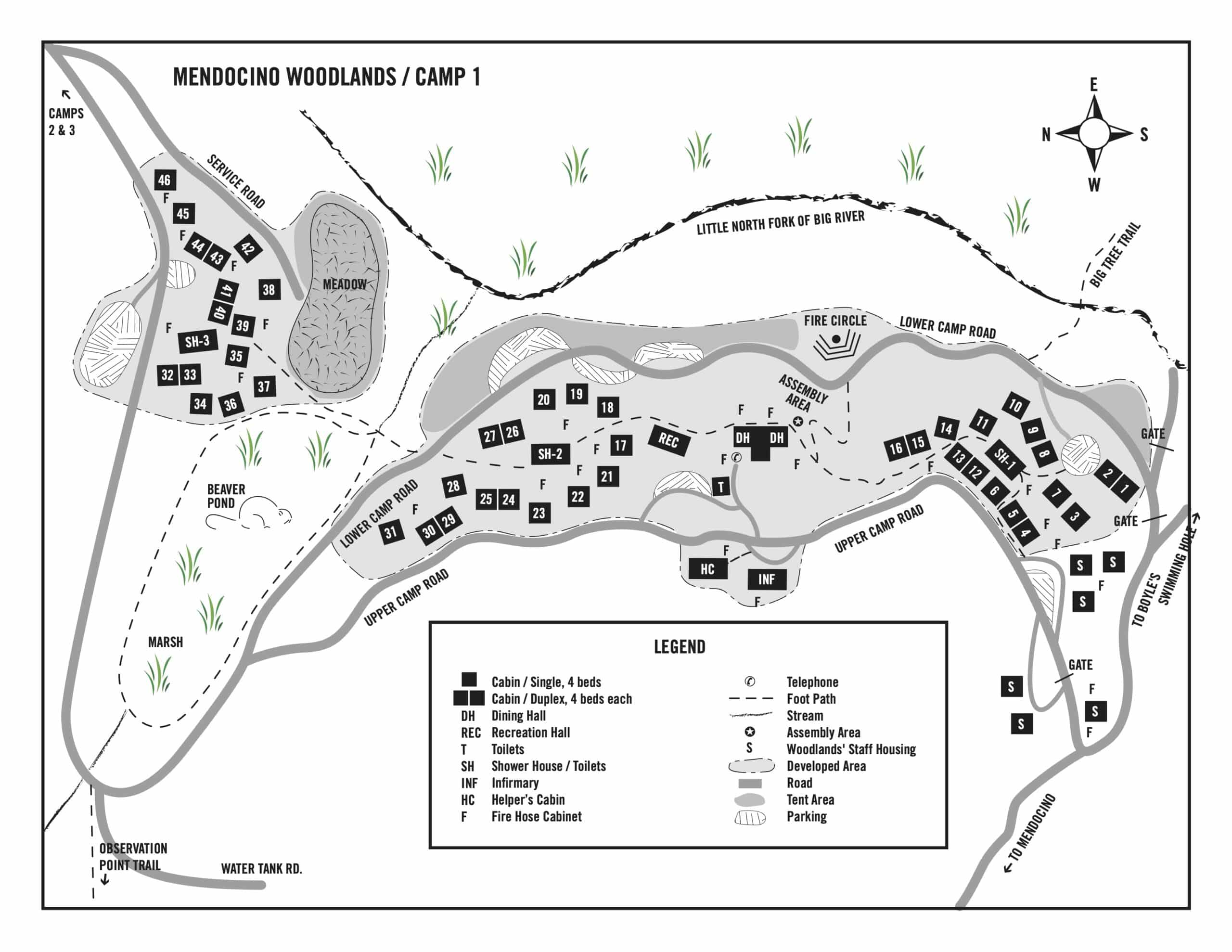
Getting to Mendocino
Mendocino Woodlands Camp One is in Jackson State Forest about 175 miles north of San Francisco, roughly 12 miles inland from the coastal town of Mendocino.
From the south, take Hwy 101 North to Cloverdale. Highway 101 bypasses Cloverdale, so take the Hwy 128 Fort Bragg/Mendocino exit (after a couple of Cloverdale exits). Some 60 miles later (twisty road, but gorgeous vineyard, redwood, and coastal scenery), take Hwy 1 North to Mendocino.
From the north (Oregon), take I-5 South to Grants Pass, then Hwy 199 to Crescent City. From there, take Hwy 101 South to Leggett. From there take Hwy 1 South (insanely twisty road to the coast, with the reward of breathtaking ocean views) to Mendocino.
From Mendocino, go east on Little Lake Road (Co. Rd. 408) from Hwy 1
(at stoplight) for 5.6 miles, then turn right on Co. Rd. 700 (winding dirt road). Drive for 4 miles to Camp One. Please drive slowly and carefully on this dusty road!
If you’ve never been to the Woodlands, plan to arrive before dark. Registration will be located just outside the dining hall.
Dine & Dance—Bed & Breakfast
Come for early evening activities, the dance party and the late night kafana. Then spend the night and enjoy breakfast before you hit the road!
Here’s how it works:
- 6:00 p.m.: Arrive at our lovely redwoods site (see Directions tab above). Check in at the Kafana and set up your bunk. Join us for a delicious dinner, starting at 6:30.
- Then take in a folklore presentation, singalong, or join in our auction. Dancing to live music begins in the main hall generally around 9:00.
- Our Kafana in the woods is a bar and a club, and a place where much music and merriment happens into the wee hours. Stay as long as you like!
- Sleep in a bunk with the bedding you brought from home.
- Roll out of bed, have breakfast by 9:30 a.m., and hit the trail by 10.
All this can be yours for $145. A cheap hotel in Ft. Bragg (forget the town of Mendocino), easily runs twice as much and provides no options for gajda, ouzo, čočeks, or çiftetelli!
HOW TO REGISTER
Registration for the B&B option will be available when general camp registration is open in spring 2025. Stay tuned!
Evening Parties
Live in the area? Join us for a fabulous evening of live music and dancing.
Admission includes the evening dance party, a delicious complimentary evening snack, as well as late-night kafana activities until 2:30 a.m. No overnight accommodations are available for partygoers; please make sure you make provisions for getting home safely after the party (or consider registering for our B&B option above!).
Arrive anytime after 8 p.m. and pay your fee at the Kafana. The dance party generally starts at 9 p.m. Please make your reservations by email two days before the first day of camp. It is also possible to attend the Friday Lamb Roast. The cost for this event is $50, and it includes dinner and the evening party (no overnight accommodations).
HOW TO REGISTER
To register for an evening party, call us at 510/219-5462, OR email the EEFC Office at least two days before the beginning of camp (we do not have telephone reception in the Woodlands).
Tell us your name(s) and which night(s) you will be attending. Please make sure your reservation has been confirmed before heading to the Woodlands.
Payment. Please be prepared to pay your full fee at the Kafana when you arrive using cash, credit card, or check.
Evening Schedule 2024
This schedule is from last year, but we’ll keep it here a while to give you an idea of what to expect in 2025.
Culture Corners and Group Sings begin at 7:45 p.m. Dance parties, unless noted, begin at 9:00 p.m.
Saturday
Dance
Brass—Fanfare Zambaleta
Bulgarian—Bulgarian Staff Musicians
Sunday
Group Sing (7:45-8:45): Ipirot Songs with Ruth Hunter
Dance (9:00-)
A Special Birthday Celebration for Joe Graziosi!
Greek Zournadhes & Daouli—Eleni, Christos & Bobby Govetas
Greek Island—Aya Safiya
Greek Thracian—Varol Saatcioglu
Monday
Group Sing—”Northern”: Dina Trageser with Chubritza
Dance
Bulgarian—Bulgarian Staff Musicians
Turkish Roman—Tano Brock
Tuesday
Auction Night (dance party begins around 10:00 p.m.)
Dance
Rhodope Sing-Along—Mark Levy & Gajda Mafia
Greek—Drómeno
Wednesday
Culture Corner: Greek-American Music & Dance of the 50s and 60s—A Personal Odyssey: an audiovisual presentation by Joe Graziosi
Dance
Macedonian Village—Michele Simon, Mark Levy, Dan Auvil & friends
Romani—Benji Rifati & Carol Silverman
Thursday
Group Sing—Macedonian & Bulgarian: Michele Simon
Dance
Greek—Aya Safiya & friends
Bulgarian—Bulgarian Staff Musicians
Friday
Student Ensembles play for your dancing pleasure (dance party begins at 8:00 p.m.)
Daily Schedule 2024
This schedule is from last year, but we’ll keep it here a while to give you an idea of what to expect in 2025.
CLASS LEVELS
- Beginner (B): You are new to this instrument/singing style.
- Intermediate (I): You have some proficiency: can match pitches, accurately replicate phrases heard by ear, and play at speed.
- Advanced (A): You have technical mastery: you are focused on stylistic details and self-expression.
If you are interested in a class that is not at your level, you can always audit! Please remember that the pace of instruction will not be geared to you, and hold your questions till the end of each session. If a class does not have a designated level, all are welcome!
CLASS SCHEDULE 2024
SLOT 1 (9:30-10:45)
Dance: Bulgarian—Kotse Marinov
Sing: Vocal Technique Intro—Michele Simon
Instrumental:
- Accordion—Kalin Kirilov
- Bulgarian Kaval A—Valeri Georgiev
- Bulgarian Tambura B—Stoyan Kostov
Kids: Children’s Activities—Darina Drapkin
SLOT 2 (11:00-12:15)
Dance: Greek—Joe Graziosi
Sing:
- Romani I/A—Carol Silverman
- Bulgarian B—Tzvety Dosseva
Instrumental:
- Trumpet—Benji Rifati
- Tupan I/A—Dan Auvil
- Clarinet/Saxophone A—Catherine Foster
Ensemble:
- Bitov (Bulgarian Village)—Kalin Kirilov
- Rebetika—Greg Jenkins & Nick Maroussis
SLOT 3 (2:00-3:15):
Dance: Greek—Joe Graziosi
Sing:
- Greek—Christos Govetas
- Bulgarian Choral—Dina Trageser
Instrumental:
- Doumbek B—Sean Tergis
- Thracian Gajda B—Varol Saatgioglu
- Makam Theory—Ali Yagiz Şen
- Bulgarian Tambura A—Stoyan Kostov
Ensemble: Greek—Eleni Govetas
SLOT 4 (3:30-4:45):
Dance: Turkish Roman—Jessaiah Zuré
Sing:
- Balkan Survey—Ruth Hunter
- Bulgarian A—Tzvety Dosseva
Instrumental:
- Doumbek I/A—Sean Tergis
- Greek Strings—Nick Maroussis
- Bulgarian Kaval B—Valeri Georgiev
- Clarinet/Saxophone I—Catherine Foster
Ensemble:
- Beginner Ensemble—Greg Jenkins & Bobby Govetas
- Macedonian Village Ensemble—Mark Levy
Kids: Youth Band—Eleni Govetas & Tano Brock
SLOT 5 (5:00-6:15):
Dance: Bulgarian—Kotse Marinov
Sing:
- Vocal Technique Master—Michele Simon
- Romani B—Carol Silverman
Instrumental:
- Thracian Gajda—Varol Saatcioglu
- Greek Violin—Aya Safiya
- Tupan B—Dan Auvil
- Greek Clarinet—Christos Govetas
Ensemble: Brass Band—Benji Rifati

